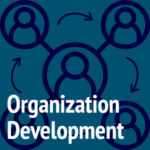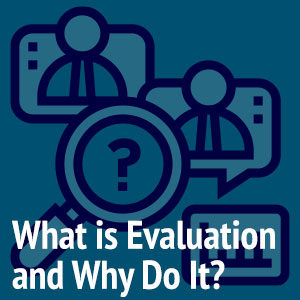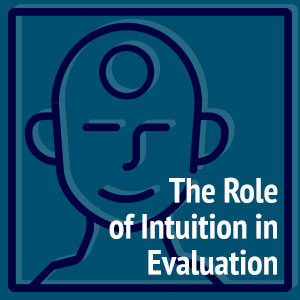 Group facilitation is a critical element in many evaluations. Although the definition of “facilitation” varies, one view of it is, “A process in which a person whose selection is acceptable to all members of the group, who is substantively neutral, and who has no substantive decision-making authority, diagnoses and intervenes to help a group improve how it identifies and solves problems and makes decisions…” (R. Schwartz “The Skilled Facilitator Approach,” in Schwartz and Davidson, eds., The Skilled Facilitator Handbook, Jossey-Baas, 2005). Correlatively, a facilitator is, “an individual who enables groups and organizations to work more effectively; to collaborate and achieve synergy. He or she is a ‘content neutral’ party who by not taking sides or expressing or advocating a point of view during the meeting, can advocate for fair, open, and inclusive procedures to accomplish the group’s work” (Kaner, S. with Lind, L., Toldi, C., Fisk, S. and Berger, D. Facilitator’s Guide to Participatory Decision-Making, (2007) Jossey-Bass).
Group facilitation is a critical element in many evaluations. Although the definition of “facilitation” varies, one view of it is, “A process in which a person whose selection is acceptable to all members of the group, who is substantively neutral, and who has no substantive decision-making authority, diagnoses and intervenes to help a group improve how it identifies and solves problems and makes decisions…” (R. Schwartz “The Skilled Facilitator Approach,” in Schwartz and Davidson, eds., The Skilled Facilitator Handbook, Jossey-Baas, 2005). Correlatively, a facilitator is, “an individual who enables groups and organizations to work more effectively; to collaborate and achieve synergy. He or she is a ‘content neutral’ party who by not taking sides or expressing or advocating a point of view during the meeting, can advocate for fair, open, and inclusive procedures to accomplish the group’s work” (Kaner, S. with Lind, L., Toldi, C., Fisk, S. and Berger, D. Facilitator’s Guide to Participatory Decision-Making, (2007) Jossey-Bass).
In the Spring 2016 issue of New Directions in Evaluation, which is dedicated to the subject of evaluation and facilitation, the editors Rita Sinorita Fierro, Alissa Schwartz, and Dawn Hanson Smart, note the multiple uses that facilitation can play in evaluations. “Many evaluations are undertaken with groups, and require evaluators to play a facilitative role—to engage stakeholders in meaningful conversations, to structure these discussions in ways that surface multiple perspectives, and to conduct focus groups on key data and make progress toward next steps or decision-making. Facilitation can help groups map theories of change, undertake data collection through focus groups or other dialogues, participate in analysis of findings, and help craft appropriate recommendations based on these findings.”
In “Facilitating Evaluation to Lead to Meaningful Change,” (which appears in the same issue, pp. 19-29) Tessie Tzavaras Catsambas writes that, “…evaluations typically require the evaluator to work with groups of people for organizing and managing an evaluation, as well as in collecting and analyzing data… evaluators must frequently facilitate group interactions to conclude an evaluation successfully.” Additionally, Tzavaras Catsambas observes, “Evaluators may often find themselves in situations in which they have to ‘facilitate’ their way through political sensitivities, misunderstandings, competing interests, confusion, apathy or refusal to cooperate.”
Although evaluation and facilitation share many of the same principles and practices, including: respect, asking good questions, engagement of/with others, and promoting effective communication and participation, the most effective facilitations and evaluations require even deeper capacities and skills. Among these: the ability to sense the mood of others, to listen deeply, to capture group-generated information, to reflect, and to move both individuals and groups toward action. Effective facilitation and evaluation also require the ability of the evaluator to build and maintain constructive relationships, to engage stakeholders, to incorporate the perspective and views of others, and to work with integrity and objectivity. (See also “Interpersonal Skills Enhance Program Evaluation” and “Establishing Essential Competencies for Evaluators” by L. Stevahn, J. King, G. Ghere, and J. Minnema). While evaluations are of course, distinct from group facilitation, facilitation can be a critical tool for evaluators. To find out about our evaluation methods visit our Data collection & Outcome measurement page.
Resources:




